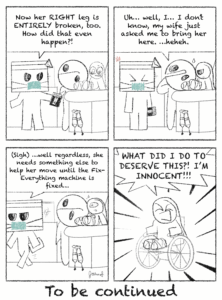Shaul Magid, Visiting Professor of Modern Jewish Studies from Harvard Divinity School, spoke with the University’s Aaron Hughes, Philip S. Bernstein Professor of Judaic Studies, on Thursday, Nov. 7. It was the third part of a year-long six-part series sponsored by the Center of Jewish Studies and the Department of Religion and Classics, called “Conversations on Israel, Palestine, and the War in Gaza.”
Magid examined the characteristics of liberal Jewish Americans who are slowly starting to abandon Zionism.
According to Magid, the Zionist consensus, which has dominated Jewish American discourse since its founding in the 1970s, has been undermined in the past year due to American Jews’ reaction to Oct. 7, 2023. Many have begun to realize how hard it is to be a liberal Zionist who partakes in Zionism’s beliefs yet endorses democratic tenets, as the two ideologically contradict each other. This is causing a change in perspective about Zionism as a central pillar of the Jewish identity.
Joshua Dubler, Associate Professor of Religion and Director of the Rochester Education Justice Initiative, began by singing a folk song called “Ayeka” by Aly Halpert. He then recited Genesis 4:10, where God said to Cain, who had killed his brother Abel, “What have you done? The voice of your brother is crying out from the ground.”
Dubler addressed the impacts of the war on Judaism. American Judaism is divided by this war, he said, where one side supports “Israel’s orgy of destruction” and the other “centers solidarity with Palestinian survival and liberation.”
Magid delved deeper into the war’s impact on American Zionism — or the Zionist consensus — and synthesized the philosophies of Hannah Arendt with current-day Marjorie Feld’s views on the conflict within Jewish political thought.
He, therefore, raised the question: Is it possible to recognize a Jewish homeland without jeopardizing the rights and presence of the Palestinian people?
Since most American Jewish Zionism has historically been liberal Zionism — an ideology that believes the Jewish homeland to be Israel while still dedicating itself to liberal democratic principles — Magid claimed that talking about the Zionist consensus is one that requires talking about liberal Zionism.
In his 1915 speech “The Jewish Problem and How to Solve It,” Louis Brandeis, who served as the first Associate Justice Jew on the Supreme Court of the United States from 1916 to 1939, said, “To be a good American is to be a Zionist and to be a Zionist is to be a good American.”
As per Magid, this line imbued the liberal Zionist tradition’s six principles: Israel has the right to exist, Israel is a Jewish state, Israel is a democratic state, the two-state solution is the most sensible, Israel is a significant component of American Jewish identity, and the relationship between Israel and the United States must be unbreakable.
Historically, multiple events have threatened American Jewish Zionism. In the 1970s, when the Zionist consensus was recently founded, most Jewish Americans found it difficult to harshly criticize the Israeli government yet remain committed Zionists. Although they struggled with political and ethical issues about the occupation, they sought to uphold their dedication to Zionism, whether due to an emotional, historical, or political attachment.
When the war in Gaza began after Hamas attacked Israel in Oct. 2023, the views of liberal Zionists shifted. People raised with the concept of Zionist consensus increasingly began denouncing Benjamin Netanyahu and the Israeli government for its actions, speaking out against the war, Magid said.
He emphasized that the liberal Zionist consensus changed from one of instability to one of crisis by outlining six strategies that liberal Zionism uses to try to avoid going extinct in the face of Oct. 7: suspicion of publicized Palestinian death tolls, claims that protests against Israel are pro-Hamas protests, reframing of the national narrative as they shift attention away from the war to the resulting anti-Semitism, arguments that Israel is fighting for its survival, descriptions of the attack as a pogrom by using Holocaust analogies, and expressing empathy for innocent civilians while still choosing to support “war that is inadvertently or indiscriminately killing women and children.”
Magid — who said he is not anti-Israel but anti-Zionist — believes states and ideologies are two different things, “Ideologies can come and go, while states can rethink and recalibrate themselves. We have to think of another ideology that would allow for the equal rights of two people to their homelands.”

